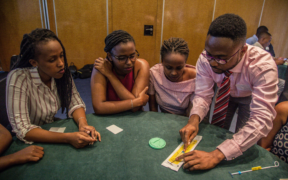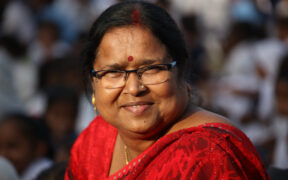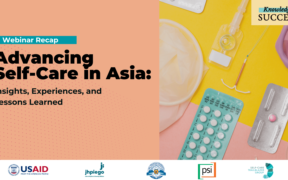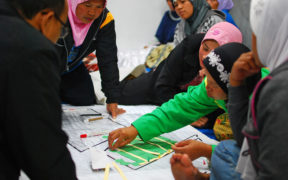Category:
Nepal

Through a long-term partnership, FP2030 and Knowledge SUCCESS have used KM techniques to summarize country commitments in shareable formats that anyone can easily understand and expand documentation expertise among FP2030 Focal Points.

Since May 2021, MOMENTUM Nepal has worked with 105 private sector service delivery points (73 pharmacies and 32 polyclinic/clinics/hospitals) in seven municipalities across two provinces (Karnali and Madhesh) to expand their access to high quality, person-centered FP services, especially for adolescents (15-19 years), and young adults (20-29 years).

Descriptive analysis of financial data trends in Nigeria, specifically in Ebonyi State, painted a rather gloomy picture for family planning (FP). Dr. Chinyere Mbachu, Doctor at Health Policy Research Group, College of Medicine at the University of Nigeria, and co-author of this research discussed how financing has an impact on reproductive health (RH) family planning.

A team of four faculty - Isha Karmacharya (lead), Santosh Khadka (co-lead), Laxmi Adhikari, and Maheswor Kafle - from the Central Institute of Science and Technology (CiST) College wanted to study the impact the COVID-19 pandemic had on FP commodities procurement, supply chain, and stock management in Gandaki province to determine if there were any variations and effect on FP service delivery. One of the team members from Knowledge SUCCESS, Pranab Rajbhandari, talked with the study’s Co-Principal Investigator, Mr. Santosh Khadka, to learn about their experiences and learning of designing and implementing this study.

On January 25, Knowledge SUCCESS hosted “Advancing Self-Care in Asia: Insights, Experiences, and Lessons Learned,” a panel conversation featuring experts from India, Pakistan, Nepal, and West Africa. The speakers discussed the feasibility and future of self-care for family planning (FP) in Asia and lessons learned from program experiences in West Africa.

A peer assist is a knowledge management (KM) approach that focuses on “learning before doing.” When a team is experiencing a challenge or is new to a process, it seeks advice from another group with relevant experience. The Knowledge SUCCESS project recently used this approach to facilitate sharing of experiential knowledge between Nepal and Indonesia. Amid declining population growth in Nepal, the project used a peer assist to advocate for continuation of leadership, commitment, and funding allocation for family planning (FP).
The private sector in Nepal is an important source of short-acting reversible contraceptives. It represents a critical opportunity to increase contraceptive access and choice. The Government of Nepal (GON) has emphasized the importance of strengthening social marketing and the private sector (National Family Planning Costed Implementation Plan 2015–2020). Nepal CRS Company (CRS) has introduced contraceptive products and services in the country for almost 50 years. Recent innovations in social marketing, through the use of marketing methods, intend to bring about social and behavioral change to improve citizens' quality of life.

Association of Youth Organizations Nepal (AYON) is a not-for-profit, autonomous and youth-led, youth-run network of youth organizations established in 2005. It acts as an umbrella organization of youth organizations throughout the country. It provides a common platform for collaboration, cooperation, joint actions, and collective endeavor among youth organizations in Nepal. AYON is engaged in policy advocacy to create moral pressure on the government for designing youth-friendly policies and programs.

The South-East Asia Youth Health Action Network, or SYAN, is a WHO-SEARO-supported network that creates and strengthens the capacity of adolescent and youth groups in southeast Asian countries for effective advocacy and engagement in national adolescent health programs as well as regional and global policy dialogue platforms.














